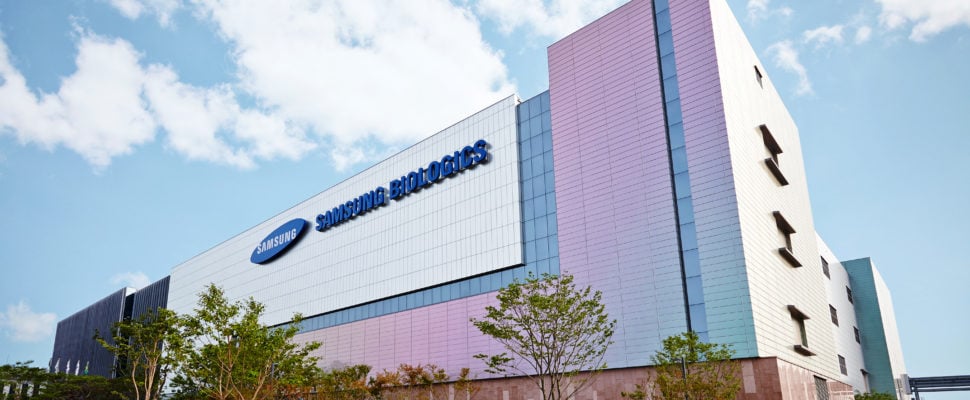It was less than a decade ago (2011) that Samsung Biologics was a new kid on the block amongst Korea’s booming biotech conglomerates.
Since then the company has snowballed, building a series of progressively larger, more advanced facilities, culminating in its 180,000L “Dream Plant.”

This facility, the largest single plant of its kind, sets Samsung Biologics up to become the world’s biggest contract manufacturer.
We went “all in” – complete dedication to the market. Once we chose to specialise in biosimilars, there was no room to survive if we failed with the few projects we had.”
Tae-Han Kim, president and CEO of Samsung Biologics
In 2011, Tae-Han Kim, president and CEO of Samsung Biologics, was tasked with finding Samsung’s new growth engine. The company considered dozens of candidate opportunities, including electric cars, solar panels, and LED lighting.
Having spent almost 40 years working across Samsung’s numerous innovative ventures, Kim possessed unparalleled experience across various industries including petrochemicals, electronics, and textiles.
“I personally was strongly attracted to the life science and healthcare industries, despite having no previous experience in the sector,” explained Kim in a recent interview with PharmaBoardroom.
Samsung’s criteria for a new product candidate was that firstly, it must be something of a high commodity with large areas for growth and high profitability. Secondly, Samsung needed to possess the capabilities to exceed the competition within 5-10 years. The answer for Samsung was biopharma.
“While biopharma is very innovative in terms of research and development, it has lacked innovation in plant construction and operation,” said Kim. “We determined that Samsung could reduce construction timelines, with higher quality and more efficient operations than available in the market at that time,” he continued.
To bring Samsung Biologics to its current position of power in just 7 years, Kim used strategies acquired from the non-pharma industry in combination with pharma industry best practices, employed around 100 global experts in the field, and formed global venture partnerships with industry leaders, such as AstraZeneca and Biogen.
With big ambitions for biosimilars, the company set out to produce five or six but have exceeded their own expectations — they are currently developing eight biosimilar products and have received approval for five, the largest number of biosimilar products approved by the FDA or EMA.
This highlights Samsung’s courage and commitment to the sector seeing as western companies began five or six years earlier than Korean companies like theirs.
“We have caught up and dramatically cut our approval times. People often ask me how this was possible. The answer is that we went “all in” – complete dedication to the market. Once we chose to specialise in biosimilars, there was no room to survive if we failed with the few projects we had.”
Samsung keeps their labs running for 24 hours and employees work shifts — a high-risk strategy but reflective of the companies fierce ambitions.
Notably, Korean companies benefit greatly from the Korean education system. The country has excellent research institutions, particularly in the area of life sciences. Samsung, for example, has over 2000 employees with an average age of only 29.
Looking to the future, Samsung Biologics has aspirations to become a one-stop shop service offering QC test services, stability test services, and other high speciality research testing areas, which pharmaceutical companies wish to contract out. As a result, Samsung Biologics will be a CMO, CDO, and CRO company.
“For us, this is not the end of the story,” assured Kim. “The industry requires further capacity, so we are willing to continue expanding our capabilities to retain our position as the number one global service provider.”
Read our exclusive interview with Tae-Han Kim, president and CEO of Samsung Biologics.


